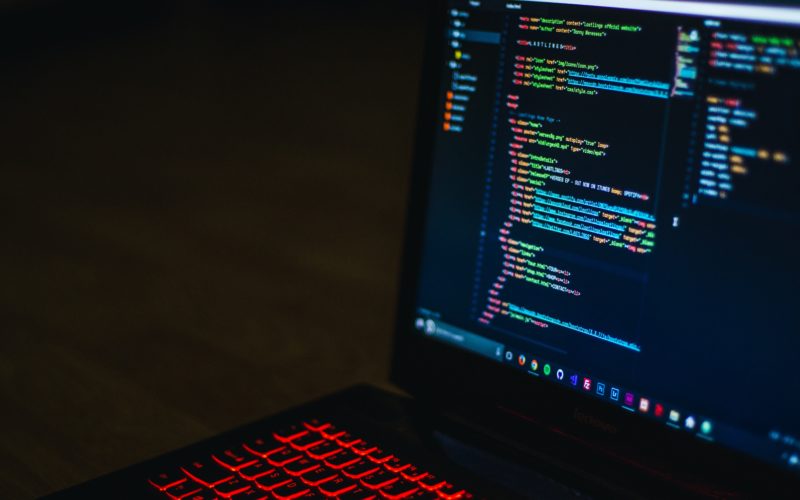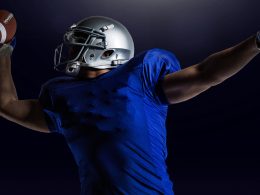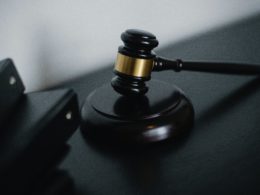Access to game data and geolocation technology are essential for sportsbooks seeking to offer online sports gambling. The value of these assets escalated on May 14, 2018, when the U.S. Supreme Court in Murphy v. National Collegiate Athletic Association1[1]Murphy v. NCAA, 138 S. Ct. 1461 (2018). repealed the Professional and Amateur Sports Protection Act (PASPA), and permitted states to legalize sports betting. Murphy opened the floodgates, and in the three-years since the decision, twenty states have legalized sports betting, six states have recently passed legislation allowing sports betting but have not implemented it yet, and twenty-two states have introduced bills for the legalization of sports betting.2[2]See Ryan Butler, Where Is Sports Betting Legal? Projections for All 50 States, The Action (February 24, 2021), https://www.actionnetwork.com/news/legal-sports-betting-united-states-projections#Pending; See Ryan Rodenberg, United States of sports betting: An updated map of where every state stands, ESPN (April 7, 2021), https://www.espn.com/chalk/story/_/id/19740480/the-united-states-sports-betting-where-all-50-states-stand-legalization
While Murphy answered the call of many, the repeal of PAPSA and legalization of sports betting raised more questions than it answered as to the application of intellectual property law to sports game data and geolocation technology. While some state gambling legislation requires sportsbooks to source game data from sports leagues, most states impose no such requirement, complicating how sports leagues can monetize that data. Furthermore, Murphy did not repeal the federal Wire Act, which prohibits interstate mobile sports gambling. Thus, where online sports gambling is legal, sportsbooks must be able to ascertain the geographic location of sports bettors to ensure that they are within the state’s borders.
This article will discuss the two areas of intellectual property law that determine how sports betting industry participants can address these challenges: (1) copyright or other property right in sports game data; and (2) patent rights in geolocation technology.
Raw Game Data Not Protected by Copyright
What is sports game data? Game data is “the minutia of what is happening in the game — is the lifeblood of sports betting, perhaps the most crucial and valuable element of the entire industry.”3[3]James Glanz and Agustin Armendariz, When Sports Betting Is Legal, the Value of Game Data Soars, New York Times (July 2, 2018), https://www.nytimes.com/2018/07/02/sports/sports-betting.html Game data encompasses all information, news, and statistics in relation to a sporting event and all data generated during an event.4[4]See Christian Frodl, Commercialization of Sports Data: Rights of Event Owners Over Information and Statistics Generated about their Sports Events, 26 MARQ. SPORTS L. REV. 55, 57 (2015). NBA v Motorola, Inc.5[5]Nat’l Basketball Ass’n v. Motorola, Inc., 105 F.3d 841 (2d Cir. 1997). SportsTrax and STATS, was a Motorola pager system, that received live scoring and statistics. The Motorola pager data was supplied by employees that watched or listened to the games in real time. The NBA sued Motorola for transmitting live scores and statistics, claiming this violated the NBA’s copyright. The Second Circuit held that factual information generated from sporting events does not constitute original works of authorship. The court stated that while the broadcasts themselves were protected under copyright law, that the facts produced during the game were not copyrightable. established that purely factual game data is not copyrightable, and nor could the NBA assert a common law property right in game data that is in the public domain.6[6]Id. The intention of copyright law is to protect original works of authorship to incentivize creators and benefit the general public. Purely factual or raw information is not copyrightable because facts contain no original work of authorship or a modicum of creativity.7[7]Id. at 847. If an individual could take temporary ownership of facts, soon enough, public discussion of factual information or current events would cease to exist. Contrary to copyright law, allowing individuals to copyright facts hurts rather benefits the general public.8[8]Id.
Furthermore, a sports league cannot assert a common law property in game data unless a “hot news” exception applies, in which the league establishes the data is extremely time sensitive and that third-party use of the data would disincentivize its creation in the first place.9[9]Id. When newspapers, fantasy sports leagues, and sportsbooks use game data, they hardly disincentivize the sport’s existence. Rather they are enhancing the value of the underlying games by intensifying fan engagement with the sport.
In this digital age, bettors want to bet on more than just the outcome of a game. Game data is crucial for a sportsbook to offer bets on second-by-second action (otherwise called “live-betting”), updating exactly when a touchdown or a basket is scored, who scored it, who had the assist.10[10]James Glanz and Agustin Armendariz, When Sports Betting Is Legal, the Value of Game Data Soars, New York Times (July 2, 2018), https://www.nytimes.com/2018/07/02/sports/sports-betting.html The recent advances in technology have allowed for the commodification of real-time data, opening a whole new world of possibilities for sportsbooks. Technology, such as smartphones, has allowed fans, professional sports gamblers, and journalists to attend sporting events and disseminate real-time information in many ways.11[11]Id. The superior betting lines a sportsbook can offer, the more clients it will attract and the more money they will make.
Similarly, sports leagues have moved to monetize the distribution of real-time sports data while trying to limit other’s ability to do so.12[12]Id.; See also Ryan Rodenberg, Regulating Sports Gaming Data, UNLV International Center for Gaming Regulation (June 2020) https://www.unlv.edu/sites/default/files/page_files/27/ICGR-Research-RodenbergUNLVWhitePaper.pdf Sports leagues want to protect their game data so they can have a piece of the pie and profit off the product they create. What can a league do to monetize/profit off game data? First, leagues can lobby statehouses to enact gambling legislation that requires sportsbooks to use official league data when creating betting odds.13[13]Jackson Brainerd, The Early Bets Are In: Is Sports Betting Paying Off?, NCSL (March1, 2021), https://www.ncsl.org/research/fiscal-policy/the-early-bets-are-in-is-sports-betting-paying-off.aspx (Three states have done this; Illinois, Michigan, and Tennessee). Second, leagues can provide a superior data stream that sportsbooks will want to buy even if not required to do so. Leagues do this by gathering game data faster and more precisely than competitors, incentivizing sportsbooks to use the best data available when creating odds.14[14]See Ryan Rodenberg, Regulating Sports Gaming Data, UNLV International Center for Gaming Regulation (June 2020) https://www.unlv.edu/sites/default/files/page_files/27/ICGR-Research-RodenbergUNLVWhitePaper.pdf Leagues may sell the data themselves, or leagues can strike a deal with a third-party vendor. The third-party pays the league for the right to disseminate data.15[15]Id.; Robert Mann, Understanding the NBA’s Sports Betting Data Deals with Sportradar, Genius Sports, Sports Handle (December 5, 2018), https://sportshandle.com/nba-sports-betting-sportradar-genius-sports-federal For example, the NFL struck a deal with Genius Sports, a tech and data firm, making Genius the official data provider for the NFL.16[16]Jabari Young, National Football League agrees to data rights deal with Genius Sports, CNBC (April 1, 2021), https://www.cnbc.com/2021/04/01/nfl-agrees-to-data-rights-deal-with-genius-sports.html Genius will distribute the play-by-play statistics, the league’s Next Gen Stats, and provide sports betting data to media companies and sportsbooks.17[17]Id. The contract is worth $120 million annually over six years.18[18]Id.
Ideally, most leagues would prefer the legislative option because they are the ones who spend the money to produce the games, but the stronger argument is option two. Since leagues do not own game data, nor is the data copyrightable, leagues will be hard-pressed to convince every state legislature to enact a bill requiring sportsbooks to use official league data. Option two allows for the free market to pressure the sportsbooks to provide the best betting odds. While most sportsbooks are not excited for an extra expense, it is hard for the sportsbooks not to see the intrinsic value of getting the best data in the fastest way possible. Particularly for “live-betting,” the speed of the data is everything. One key basket or a big pass late in the game can significantly change the “live-betting” odds.
Geolocation Technology Sparks Patent Battles
The intersection between sportsbooks and patent law has never been greater as statutory restraints require the use of geolocation technology to ensure mobile betting does not cross state lines. Put simply, geolocation is a technology that uses data acquired from an individual’s computer or mobile device to identify the user’s physical location.19[19]Betsie Estes, Geolocation—The Risk and Benefits of a Trending Technology, ISACA (September 26, 2016), https://www.isaca.org/resources/isaca-journal/issues/2016/volume-5/geolocationthe-risk-and-benefits-of-a-trending-technology Geolocation technology is used by sportsbooks when “a gaming service provider—such as a casino—wirelessly communicates with users’ mobile devices, allowing them to gamble remotely.”20[20]Fanduel, Inc. v. Interactive Games LLC, 966 F.3d 1334, 1336 (Fed. Cir. 2020). Geolocation technology is critical to a sportsbook’s online operation because of the Interstate Wire Act of 1961, which prohibits those “engaged in the business of betting or wagering” from using a “wire communication facility” for the interstate transmission of “bets or wagers on any sporting event or contest.”21[21]Id. Sportsbooks face considerable fines under the Wire Act if they fail to correctly identify an individual’s location or fail to restrict bets to a particular area within state lines. Because gambling is state regulated, geolocation technology is essential to block bets placed from out of state gamblers22[22]Steve Ruddock, The Backbone of Legal Online Gambling In The US, Part 1: Geolocation, Betting USA (October 31, 2019), https://www.bettingusa.com/geolocation-interview-geocomply/; Fanduel, Inc. v. Interactive Games LLC, 966 F.3d 1334, 1336 (Fed. Cir. 2020). and counter the real risk that an individual alters location data on a device used for mobile betting.23[23]Steve Ruddock, The Backbone of Legal Online Gambling In The US, Part 1: Geolocation, Betting USA (October 31, 2019), https://www.bettingusa.com/geolocation-interview-geocomply/; Betsie Estes, Geolocation—The Risk and Benefits of a Trending Technology, ISACA (September 26, 2016), https://www.isaca.org/resources/isaca-journal/issues/2016/volume-5/geolocationthe-risk-and-benefits-of-a-trending-technology Online bettors are known to use tools such as VPN’s24[24]“In very simple terms, a VPN connects your PC, smartphone, or tablet to another computer (called a server) somewhere on the internet, and allows you to browse the internet using that computer’s internet connection. So if that server is in a different country, it will appear as if you are coming from that country, and you can potentially access things that you couldn’t normally.” Chris Hoffman, What is a VPN, and Why Would I need One? How To Geek (October 15, 2020), https://www.howtogeek.com/133680/htg-explains-what-is-a-vpn/ to manipulate their location.25[25]18 U.S.C. § 1084; Steve Ruddock, The Backbone of Legal Online Gambling In The US, Part 1: Geolocation, Betting USA (October 31, 2019), https://www.bettingusa.com/geolocation-interview-geocomply/
Access to this technology is regulated under patent law. Patent law’s purpose is to provide inventors with exclusive rights to their technological innovations for a limited time.26[26]See UNITED STATES PATENT AND TRADEMARK OFFICE, What is a Patent?, https://www.uspto.gov/patents/basics. Patents aim “to promote the progress of science and useful arts, by securing for limited times to authors and Inventors the exclusive right to their respective writings and discoveries.”27[27]Id. An individual can obtain patent protection for “any new and useful process, machine, manufacture, or composition of matter, or any new and useful improvement thereof.”28[28]Id. By definition, technology (geolocation software) developed to improve the speed and reliability of online sports betting platforms falls within patentable subject matter.29[29]Id. Holders of these patents have vigorously defended their rights and impeded access of competitors to this essential technology.
Sportsbooks sought to defend geolocation patents in CG Tech. Dev. v. Fanduel, Inc. and Fanduel, Inc. v. Interactive Games LLC.30[30]Fanduel, Inc. v. Interactive Games LLC, 966 F.3d 1334, 1336 (Fed. Cir. 2020). CG Technology is one of the largest sportsbooks in Nevada, and it accused FanDuel and other competitors of infringing several patents on various aspects of online betting technology.31[31]Id. The primary patent at issue is known as the ‘058 patent which is “capable of determining a gambler[’]s location and, thereby restrict[ing] access to the gaming controller based on the gambling laws where the gambler is located.”32[32]Id. In CG Tech. Dev. v. Fanduel, Inc.33[33]CG Tech. Dev. v. Fanduel, Inc., 442 F. Supp. 3d 840, 845 (D. Del. 2020)., the district court of Delaware invalidated most of the patent on obviousness grounds, that is, the invention as a whole would have been obvious to the person of ordinary skill in the pertinent art at the pertinent time.34[34]Id. The court held that “abstract ideas implemented using a computer aren’t eligible for patent protection without an additional inventive concept.”35[35]Id. The later case, Fanduel, Inc. v. Interactive Games LLC, addressed the one patent infringement claim that had survived, denominated “claim 6,” and found that the Patent Trials and Appeals Board correctly found that Fanduel did not establish obviousness and had infringed the patent.36[36]Id. Patent fights over geolocation technology are likely to continue given their importance to sportsbooks.
Expect new controversies and litigation over access to game data and software innovations as online betting comes to dominate the sports gambling industry.
Written by: Scott Katz
Scott is a 2022 J.D. Candidate at Brooklyn Law School
1 Murphy v. NCAA, 138 S. Ct. 1461 (2018).
2 See Ryan Butler, Where Is Sports Betting Legal? Projections for All 50 States, The Action (February 24, 2021), https://www.actionnetwork.com/news/legal-sports-betting-united-states-projections#Pending; See Ryan Rodenberg, United States of sports betting: An updated map of where every state stands, ESPN (April 7, 2021), https://www.espn.com/chalk/story/_/id/19740480/the-united-states-sports-betting-where-all-50-states-stand-legalization
3 James Glanz and Agustin Armendariz, When Sports Betting Is Legal, the Value of Game Data Soars, New York Times (July 2, 2018), https://www.nytimes.com/2018/07/02/sports/sports-betting.html
4 See Christian Frodl, Commercialization of Sports Data: Rights of Event Owners Over Information and Statistics Generated about their Sports Events, 26 marq. sports l. rev. 55, 57 (2015).
5 Nat’l Basketball Ass’n v. Motorola, Inc., 105 F.3d 841 (2d Cir. 1997). SportsTrax and STATS, was a Motorola pager system, that received live scoring and statistics. The Motorola pager data was supplied by employees that watched or listened to the games in real time. The NBA sued Motorola for transmitting live scores and statistics, claiming this violated the NBA’s copyright. The Second Circuit held that factual information generated from sporting events does not constitute original works of authorship. The court stated that while the broadcasts themselves were protected under copyright law, that thefacts produced during the game were not copyrightable.
6 Id.
7 Id. at 847.
8 Id.
9 Id.
10 James Glanz and Agustin Armendariz, When Sports Betting Is Legal, the Value of Game Data Soars, New York Times (July 2, 2018), https://www.nytimes.com/2018/07/02/sports/sports-betting.html
11 Id.
12 Id.; See also Ryan Rodenberg, Regulating Sports Gaming Data, UNLV International Center for Gaming Regulation (June 2020) https://www.unlv.edu/sites/default/files/page_files/27/ICGR-Research-RodenbergUNLVWhitePaper.pdf
13 Jackson Brainerd, The Early Bets Are In: Is Sports Betting Paying Off?, NCSL (March1, 2021), https://www.ncsl.org/research/fiscal-policy/the-early-bets-are-in-is-sports-betting-paying-off.aspx (Three states have done this; Illinois, Michigan, and Tennessee).
14 See Ryan Rodenberg, Regulating Sports Gaming Data, UNLV International Center for Gaming Regulation (June 2020) https://www.unlv.edu/sites/default/files/page_files/27/ICGR-Research-RodenbergUNLVWhitePaper.pdf
15 Id.; Robert Mann, Understanding the NBA’s Sports Betting Data Deals with Sportradar, Genius Sports, Sports Handle (December 5, 2018), https://sportshandle.com/nba-sports-betting-sportradar-genius-sports-federal
16 Jabari Young, National Football League agrees to data rights deal with Genius Sports, CNBC (April 1, 2021), https://www.cnbc.com/2021/04/01/nfl-agrees-to-data-rights-deal-with-genius-sports.html
17 Id.
18 Id.
19 Betsie Estes, Geolocation—The Risk and Benefits of a Trending Technology, ISACA (September 26, 2016), https://www.isaca.org/resources/isaca-journal/issues/2016/volume-5/geolocationthe-risk-and-benefits-of-a-trending-technology
20 Fanduel, Inc. v. Interactive Games LLC, 966 F.3d 1334, 1336 (Fed. Cir. 2020).
21 Id.
22 Steve Ruddock, The Backbone of Legal Online Gambling In The US, Part 1: Geolocation, Betting USA (October 31, 2019), https://www.bettingusa.com/geolocation-interview-geocomply/; Fanduel, Inc. v. Interactive Games LLC, 966 F.3d 1334, 1336 (Fed. Cir. 2020).
23 Steve Ruddock, The Backbone of Legal Online Gambling In The US, Part 1: Geolocation, Betting USA (October 31, 2019), https://www.bettingusa.com/geolocation-interview-geocomply/; Betsie Estes, Geolocation—The Risk and Benefits of a Trending Technology, ISACA (September 26, 2016), https://www.isaca.org/resources/isaca-journal/issues/2016/volume-5/geolocationthe-risk-and-benefits-of-a-trending-technology
24 “In very simple terms, a VPN connects your PC, smartphone, or tablet to another computer (called a server) somewhere on the internet, and allows you to browse the internet using that computer’s internet connection. So if that server is in a different country, it will appear as if you are coming from that country, and you can potentially access things that you couldn’t normally.” Chris Hoffman, What is a VPN, and Why Would I need One? How To Geek (October 15, 2020), https://www.howtogeek.com/133680/htg-explains-what-is-a-vpn/
25 18 U.S.C. § 1084; Steve Ruddock, The Backbone of Legal Online Gambling In The US, Part 1: Geolocation, Betting USA (October 31, 2019), https://www.bettingusa.com/geolocation-interview-geocomply/
26 See United States Patent And Trademark Office, What is a Patent?, https://www.uspto.gov/patents/basics.
27 Id.
28 Id.
29 Id.
30 Fanduel, Inc. v. Interactive Games LLC, 966 F.3d 1334, 1336 (Fed. Cir. 2020).
31 Id.
32 Id.
33 CG Tech. Dev. v. Fanduel, Inc., 442 F. Supp. 3d 840, 845 (D. Del. 2020).
34 Id.
35 Id.
36 Id.




